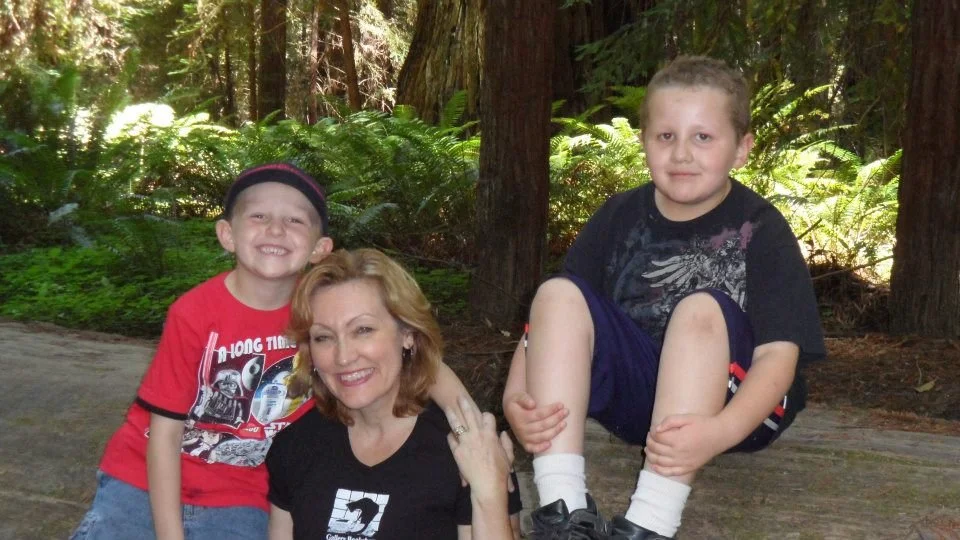
Sarah A., AZ
As a Respiratory Therapist I spent many years promoting lung health, participating in the lung force walks, climb for air events, and raising money for the American Lung Association. I knew the statistics and what the reality was for so many patients dealing with lung cancer, but it was still a huge shock when it hit my family.
In the spring of 2016 my mother went into the emergency room for chest pain. While she was getting worked up she was given a routine CT scan of her chest. The scan showed a small 5mm nodule on the left lower lobe. For follow up it was important to have a repeat CT scan 3 to 6 months after that initial scan.
However, she waited to do this and instead had the repeat scan in October of 2018, and it was found that the nodule had grown to 1.6cm.
After her scan, she had a PET-CT and it showed positive uptake of the nodule as well as a surrounding lymph node. By that time she called the Cancer Treatment Centers of America in Goodyear, Arizona and began a consultation. At this time her Pulmonologist did a bronchoscopy and made sure to obtain as many samples as he could of the tissue. He also ordered an MRI of her brain. The samples came back positive for non-small lung adenocarcinoma and based on her PET scan she was initially diagnosed as being in stage 2. However the brain MRI revealed multiple metastatic lesions and her diagnosis was changed to stage 4.
This diagnosis was truly devastating for everyone in our family. My mother is a true source of wisdom and reason, she is the rock that keeps us all level headed and grounded.
Lung cancer is the number one cancer killer, and the 2nd most commonly diagnosed cancer in both woman and men. Along with this my mom is a never smoker, but if you have lungs you can get lung cancer.
After she received her diagnosis her Oncologist and Pulmonologist sent her remaining biopsy samples for genetic bio-marker testing, and her test came back positive for the ALK gene.
The ALK gene is one of a few bio-markers that have been discovered and it occurs in about 5% of lung cancer cases. By knowing this my mom was able to begin her therapy which included whole brain radiation, and a special chemo pill that blocks the receptor for the ALK gene.
After ten rounds of radiation and 3 months of the pill her tumor has shrunk by more than 50% and the metastatic lesions in the brain almost completely gone. Her treatments make her very tired and sick at times, but with symptom management through the Palliative care and Naturopathic doctors she has been able to go back to work, and feels incredibly blessed.
This experience has taught me and my family so much.
First, do not wait.
If you know there is an abnormality or something is just not right, don't let the demands of life take up the time you need to take to follow up with your doctor.
Second, have hope.
Lung Cancer is the #1 cancer killer, but that does not mean that a diagnosis is a death sentence. There are so many new treatments and discoveries happening right now that the statistics of the near future look promising.
Third, do your homework.
Treatments are getting better, however, bio-marker testing is not always standard practice, therefore it is important to find a cancer center and/or specialist that focuses on lung cancer. If you are curious just look up the NCCN guidelines for cancer care and ask your medical team if they follow these same guidelines.
Fourth, find inspiration and hope around you.
When we were in the initial shock phase of her diagnosis reading others stories through the American Lung Association and other organizations really helped to ease the anxiety and stress.
Finally, consider donating and/or volunteering with the American Lung Association.
When I was raising money, walking, and climbing for the American Lung Association, I did not fully grasp everything that the ALA does. Once we got this diagnosis I realized just how important raising money for lung health and lung cancer research was. It is with these dollars that most researchers get their funds to continue making strides against the disease. Without the ALA and organizations like it, many of these scientists would not have the means to continue working, and there is so much more that needs to be done.
First Published: May 8, 2019
A Breath of Fresh Air in Your Inbox
Join over 700,000 people who receive the latest news about lung health, including research, lung disease, air quality, quitting tobacco, inspiring stories and more!
Thank You!
You will now receive email updates from the American Lung Association.

